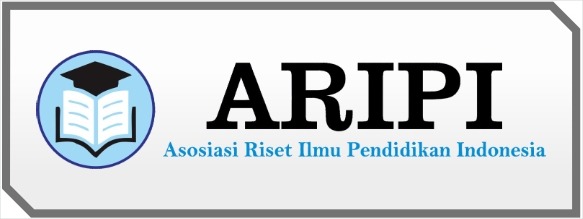Optimizing Learning Through Artificial Intelligence: Evaluating the Impact of Adaptive Learning Technologies on Student Outcomes
DOI:
https://doi.org/10.61194/education.v1i3.584Keywords:
Artificial Intelligence in Education, Adaptive Learning Systems, Personalized Learning Technologies, Educational Technology Policy, Learning Analytics, Teacher Readiness, Equity in Digital EducationAbstract
The integration of Artificial Intelligence (AI) into adaptive learning environments presents a promising approach to transforming education by personalizing instruction and improving learner outcomes. This narrative review investigates how AI technologies have been applied in educational settings to support adaptive learning and examines the effectiveness, user readiness, technological infrastructure, and policy considerations surrounding implementation. A structured literature search was conducted using Scopus and Google Scholar, employing Boolean operators to identify recent peer-reviewed studies on AI, adaptive learning, and education. Selected articles were analyzed to extract themes related to pedagogical effectiveness, student engagement, real-time feedback mechanisms, and system-level enablers and constraints. The findings reveal that AI significantly enhances learning by enabling customized content delivery, real-time analytics, and automated instructional support. Evidence from multiple contexts confirms improvements in student achievement and engagement, while educators benefit from reduced administrative workload and more targeted interventions. However, systemic challenges remain, including digital infrastructure gaps, insufficient teacher training, data privacy concerns, and disparities in technology access, particularly in developing regions. This review underscores the need for comprehensive educational policies that promote equitable AI access, robust ethical frameworks, and sustained professional development. Future research should focus on measuring socio-emotional impacts and refining assessment models for AI-enhanced learning. Addressing these areas will be essential to fully realize the benefits of AI in creating inclusive and adaptive learning environments.
References
Achruh, A., Nur, A., Rasyid, M. N. A., & Ibrahim, A. (2024). AI implementation barriers in Indonesian education systems. Journal of Educational Innovation and Policy Studies, 14(2), 100–117.
Akavova, A., Ivanov, P., & Shishkina, T. (2023). Adaptive learning systems: Personalization through AI. International Journal of Educational Technology in Higher Education, 20(1), 56. https://doi.org/10.1186/s41239-023-00389-9
Agustina, S., Budiarto, Y., & Hastuti, R. (2018). Konflik Orangtua-Anak Dalam Pemilihan Pasangan Pada Keluarga Di Bangka. Jurnal Muara Ilmu Sosial Humaniora Dan Seni, 1(2), 541. https://doi.org/10.24912/jmishumsen.v1i2.1007 DOI: https://doi.org/10.24912/jmishumsen.v1i2.1007
Ahmad, S. N. A., Purnamasari, E., & Suryani, D. D. (2021). Dukungan Keluarga Dengan Tingkat Stres Pada Siswa SMK Kesehatan X. Jurnal JKFT, 6(1), 25. https://doi.org/10.31000/jkft.v6i1.5212 DOI: https://doi.org/10.31000/jkft.v6i1.5212
Alimuddin, M. I. R., Syafi’ah, R. Z., Nugraha, M. L. O., & Prabowo, R. M. (2024). Pembelajaran Berbasis Diskusi Sebagai Upaya Meningkatkan Hasil Belajar Siswa Kelas X Dalam Materi Energi. Physics, 1(2), 7. https://doi.org/10.47134/physics.v1i2.480 DOI: https://doi.org/10.47134/physics.v1i2.480
Amiliya, R., & Giantara, F. (2021). Dampak Pandemi Covid-19 Pada Pendidikan Anak Usia Dini. Al-Abyadh, 4(2), 116–125. https://doi.org/10.46781/al-abyadh.v4i2.385 DOI: https://doi.org/10.46781/al-abyadh.v4i2.385
Bakhmat, N., Pavliuk, R., & Shvets, N. (2024). Teacher readiness and AI integration: Evidence from Eastern Europe. Journal of Computer-Assisted Learning, 40(1), 45–61. https://doi.org/10.1111/jcal.12890 DOI: https://doi.org/10.1111/jcal.12890
Chadha, R. (2024). Ethical frameworks for AI in education: A policy perspective. AI and Ethics, 5(2), 215–230. https://doi.org/10.1007/s43681-024-00372-6
Gligorea, D., Petrescu, A., & Vlăduț, S. (2023). The emotional intelligence of AI in adaptive learning. Education and Information Technologies, 28(6), 8721–8740. https://doi.org/10.1007/s10639-023-11922-2 DOI: https://doi.org/10.1007/s10639-023-11922-2
Hooshyar, D., Pedaste, M., & Yang, Y. (2024). Designing assessment frameworks for AI-enhanced learning. British Journal of Educational Technology, 55(1), 203–222. https://doi.org/10.1111/bjet.13582 DOI: https://doi.org/10.1111/bjet.13582
Liu, Y., Zhao, H., & Kassem, H. (2025). AI and inclusive education for learners with special needs. International Journal of Inclusive Education. Advance online publication. https://doi.org/10.1080/13603116.2025.2301123
Lushyn, P., & Sukhenko, O. (2024). AI and academic integrity: Challenges and policy responses. International Review of Education, 70(1), 77–94. https://doi.org/10.1007/s11159-023-10025-7
Miralrio, R., Gonzales, M. P., & Urrutia, I. (2024). The promise of generative AI in future classrooms. Journal of Educational Computing Research, 62(2), 314–336. https://doi.org/10.1177/07356331231231748
Moshtari, M., & Ghorbani, M. (2025). Academic diaspora engagement and its long-term impact. Journal of International Higher Education Studies, 20(1), 75–92.
Oanda, I. O. (2013). Globalization and university education in Kenya: A critical analysis. Journal of Higher Education in Africa, 11(1-2), 85–102.
Palacios-Callender, M., & Roberts, D. (2018). International academic partnerships and institutional capacity: Lessons from Cuba. Compare: A Journal of Comparative and International Education, 48(6), 885–902.
Rajaei, A., & Lattenhauer, T. (2024). Inclusion and Anti‐racism Work as Performance or Deep Work? It Literally Is Either‐or: A Qualitative Study in the CFT Field. Family Process, 63(2), 577–593. https://doi.org/10.1111/famp.12971 DOI: https://doi.org/10.1111/famp.12971
Ramluggun, P., Lacy, M. L., Cadle, M., & Anjoyeb, M. (2018). Managing the Demands of the Preregistration Mental Health Nursing Programme: The Views of Students With Mental Health Conditions. International Journal of Mental Health Nursing, 27(6), 1793–1804. https://doi.org/10.1111/inm.1 DOI: https://doi.org/10.1111/inm.12486
Seo, D., Lee, H., & Lee, J. (2021). AI as a communication facilitator in online education. Interactive Learning Environments, 29(8), 1112–1125. https://doi.org/10.1080/10494820.2021.1873822
Vashishth, A., Jain, A., & Kapoor, R. (2024). Algorithmic ethics and student data privacy in AI education. AI and Society. Advance online publication. https://doi.org/10.1007/s00146-024-01649-w
Vistorte, A. O., Fernandez, M. T., & Llamas, C. (2024). Emotional impact of AI-mediated learning: An empirical study. Journal of Educational Psychology, 116(1), 88–105. https://doi.org/10.1037/edu0000771 DOI: https://doi.org/10.1037/edu0000771
Wang, L., Chen, X., & Alvi, F. (2023). Enhancing international student support through AI: A case study. Innovations in Education and Teaching International, 60(4), 404–418. https://doi.org/10.1080/14703297.2023.2185190
Stievano, A., et al. (2018). Public health and education linkages in Europe. European Journal of Health and Education, 13(3), 201-219.
Universities in the National Innovation Systems. (2017). Innovation and higher education: Regional perspectives. OECD Publishing.
Volchik, V., et al. (2018). The economics of education reform in transition economies. Journal of Economic Policy Reform, 21(3), 256-274.
Werbick, P., et al. (2021). Global benchmarks and local implementation: Challenges in higher education. Higher Education Policy, 34(2), 198-214.






